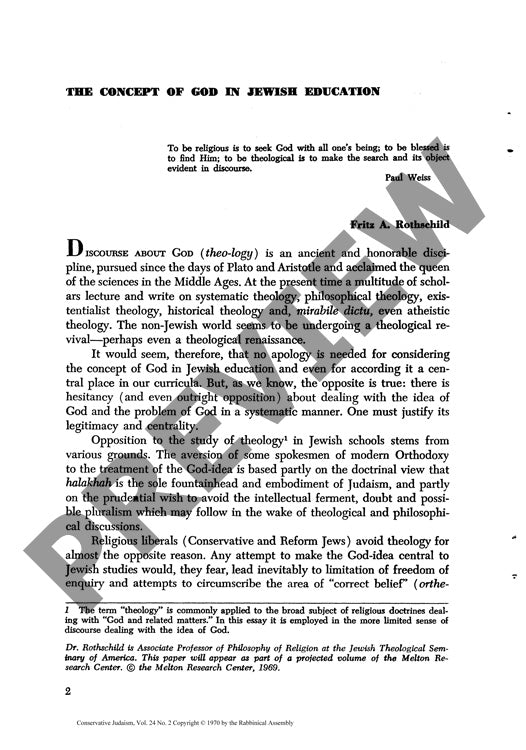The Concept of God in Jewish Education
Couldn't load pickup availability
Contemporary Jewish educators face a paradox: while Judaism centers on relationship with God, many avoid systematic theological education in their curricula. Through correlational analysis combining natural and revelational theology, five fundamental human experiences emerge as gateways to religious understanding: change, dependence, order, value, and imperfection. These universal experiences generate theological questions that Jewish sources distinctively address. Orthodox educators hesitate to incorporate systematic theology fearing undermined halakhic authority, while liberal educators worry about doctrinal restriction. Yet Judaism's theotropic nature demands central treatment of the God-concept. Rather than catechistic indoctrination, the research advocates teaching through representative classical Jewish texts, emphasizing the experiential foundations of religious consciousness. Analysis reveals theological approaches falling into ontological, moral, and quasi-mystical types, with Judaism characteristically maintaining tension between sacramental and utopian elements. The findings demonstrate that effective religious education requires integrating theological knowledge with religious practice, as understanding develops through the dynamic interplay of study and observance. This framework offers a path forward for addressing the God-concept that honors denominational diversity while preserving religious authenticity in modern Jewish educational contexts.

More Information
-
Physical Description
-
Publication Information
Published 1970
ISBN
-
Publication Credits
Fritz Rothschild

